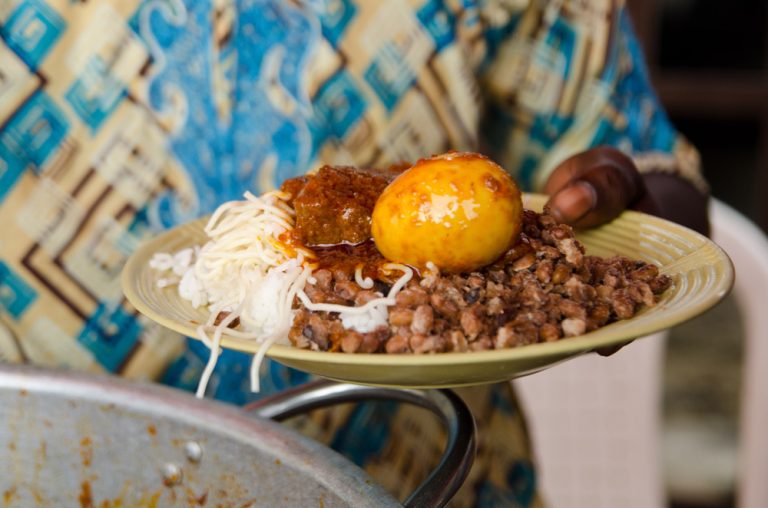The constant rise in inflationary pressures has plunged many Nigerians into a financial crisis, increasing living costs, food costs and worsening their livelihoods.
This surge in the cost of food items and other consumables not only affects individual homes in buying these items but also reduces the sales of foodstuff in the market.
A trader who sells foodstuff at wholesale prices in Ikotun market told BusinessDay that from the beginning of June, sales of rice, groundnut oil, beans and yams have dropped significantly while demand for spaghetti and noodles has increased.
“Many of our customers who would buy a bag of rice and five or ten litres of groundnut oil can’t afford that much again. Instead they go for half bag, which was sold for N26,000 as in December or a bottle of vegetable oil sold between N1000 – N1,200.
“What people buy majorly now is noodles and spaghetti, and the price has equally been increasing. One spaghetti is sold between N600 – N700 while a carton of noodles, depending on the manufacturer, sells between N3,500 – N5,500 now,” she said.
The latest report by the National Bureau of Statistics (NBS) showed that Nigeria’s Consumer Price Index (CPI), otherwise known as inflation, rose for the 12th straight month to a 20-year high of 28.92 per cent from 28.20 per cent in November 2023 causing Nigerians to prioritise their spendings as well as their lifestyles.
An analysis by BusinessDay showed that Nigeria’s inflation rate is the highest since January 2003.
In the same token, food inflation has equally restricted a decline, instead it continues soaring, making thousands of households wallow in unprecedented hunger.
As at December 2022, Nigeria’s food inflation was 23.75 percent. It has now increased by about ten percent as it rose from 32.84 percent in November to 33.93 in December, 2023.
Increases in prices of oil and fat, bread and cereals, potatoes, yam and other tubers, fish, fruit, meat, vegetables, milk, cheese, and eggs caused the rise in food inflation year-on-year.
For Anjola, a recently married woman who stays around the Iba area of Lagos, the cost of food items has made her repeat the same meals for her husband, leaving the couple to eat only what they can afford.
“During the first 5 months after my wedding, my husband will always provide adequate finance to stock the house with foodstuffs. Having every necessary item in the kitchen brings joy and makes me want to try new recipes.
“But you see now, we repeat meals repeatedly because food items are extra expensive. So we eat only what we can afford. It’s disheartening,” she lamented.
In his own narration, Tejuosho Ayobami, a civil servant with Ogun State government said prices of food items are not constant, hence he buys the most important ones and gets others later.
While inflation in Africa’s biggest economy persists, its peers have declined.
Ghana’s inflation slowed to 23.2 percent in December from 26.4 percent in November, 2023.
The World Bank in its report on Nigeria’s development, projected that inflation will gradually decline in 2024 and beyond, reducing poverty albeit only marginally and slowly.
Corroborating the World Bank’s assertion, a research firm, CardinalStone, also said in its latest report that Nigeria’s inflation rate will revert to its long-run average of 14.0% from current levels as most of the currency pressure points may have waned by 2025.
A logistic agent, Egbetokun Seyi, said he hopes things will take a positive turn in 2024. However, he added that the government should “take the necessary steps to better the country’s economic situation e.g increase in capital expenditure.”
On the contrary, Ibrahim Sodiq Duroorike, an economist and fact checker, said that Nigerians’ purchasing power has been reduced so much that it can not meet their daily needs.
“Our earning capacity has been reduced to peanuts that cannot purchase our daily necessities in terms of food and other human needs, no thanks to the high rate of inflation occasioned by the removal of subsidy, and the lack of measures by the present day government to combat its adverse effect on the generality of the poor and common people,” he argued.
Duroorike added that the government’s palliative to cushion the effects of the austerity may not have reached the “downtrodden pepper sellers, vulcanisers and majority of the petty traders whose businesses are from hand to mouth, but now have their hands chopped off by the rising cost of goods.”
In his view, the government needs to have a u-turn from market fundamentalist policies to policies that would ensure the democratic control, usage and management of human and natural resources to better the people’s lives for meaningful changes to happen moving forward.
Rising inflation in Africa’s most populous country has pushed no less than 14 million Nigerians into poverty in 2023, according to the latest Nigeria Development Update report by the World Bank.
This implies that the number of poor people rose to 104 million from 89.8 million at the beginning of 2023.


